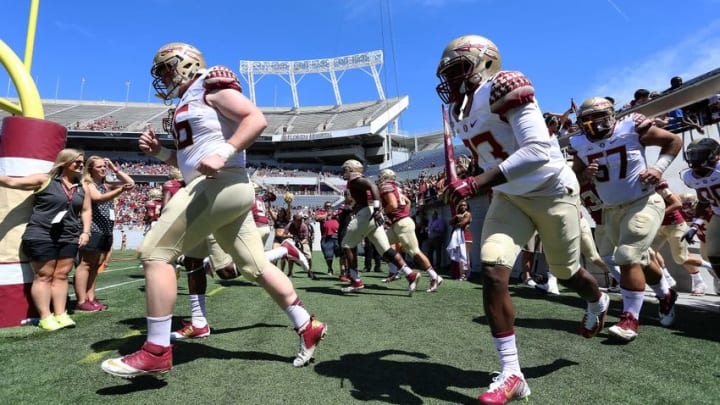If the state of Florida allowed junior colleges to field football programs, schools like FSU would have such an advantage with the amount of talent.
When the Florida State Seminoles take the field for their season opener against Ole Miss, there will be six players for FSU football who have spent time at a junior college. Of that group, just two will have spent time playing football at the JuCo level before stepping on the field for the Seminoles.
While the other four all attended schools in the state of Florida, none of them were able to play ball because no junior college in the state system has organized football. Only one school in the state plays the game – ASA College in Miami, which is the satellite of a school in New York and goes by their rules that allow for JuCo football.
In total, there are 19 states across America that have junior college football programs. States like Georgia, Kansas, Texas, New York, California and others have no problem with it – but Florida, a state with maybe the most talent of any when it comes to football, tells players who don’t go to a four year school that they need to look elsewhere to play the game.
For over three decades now, the rule has been on the books in the state that there is to be no football at the community college level. While sports like basketball, baseball and others take place, fielding and paying for football at the dozens of schools across Florida was more than state officials wanted to deal with.
Because of that, players like Seminoles defensive tackle and Boynton Beach native Wally Aime had to leave his native South Florida and not play for schools in Palm Beach, Broward or Miami-Dade County. Instead, it was off to Fort Scott Community College in Kansas.
Call it being optimistic, but imagine if players like Aime and other stars from the Sunshine State were able to stay home for the two years of JuCo football. Schools like FSU (as well as rivals Florida and Miami) would have a field day when it came to recruiting. Every football season, we hear about players across the country who played high school in Florida – and JuCo ball elsewhere.
I’m not stupid and saying that the Seminoles would get every single recruit they wanted if schools like Miami-Dade College, Polk State College and Edison State College had football programs. But if you don’t think that players would rather stay in Florida when it came time to pick a four year college, you’re fooling yourself.
The fountain of talent would flow inside the Sunshine State and the ‘Noles, Gators, ‘Canes and even the Bulls and Knights would reap the benefits of getting first dibs on the players. Some would still choose to leave the state, but you can be willing to bet many will choose a Florida program, even FCS schools like FAMU, Jacksonville and Stetson.
Alas, it will likely never happen with the current financial questions across the state. One solution would be to cap the number of players on a team or even play seven on seven football like some school districts do across the country at the high school level. Neither one of those will suffice for a purist who wants only the best when it comes to football being played in the state.
So, just like every other recruiting period before, FSU will be out recruiting at junior colleges across the country – in some cases, recruiting someone from their very own backyard who could have been great in the Sunshine State.
